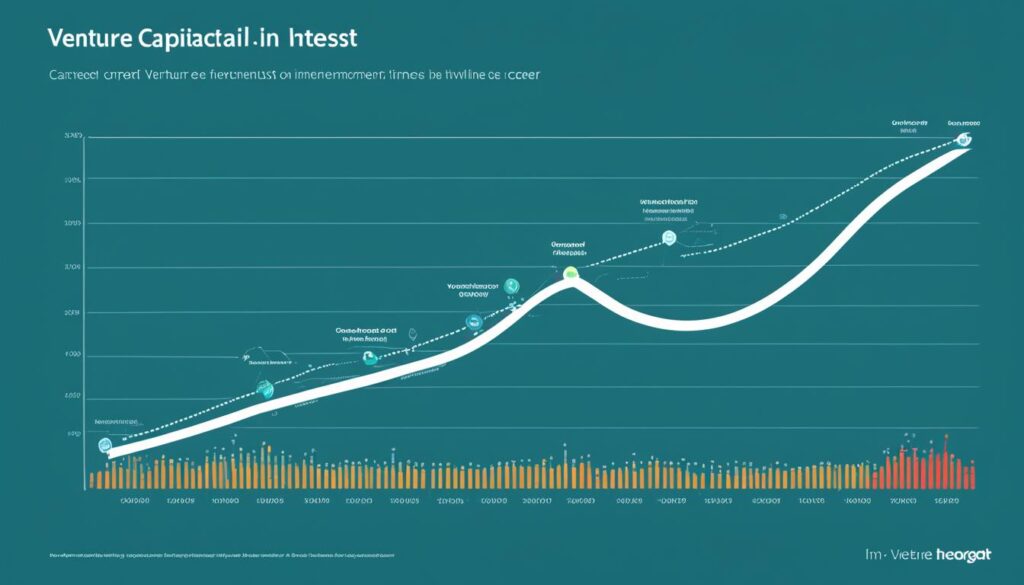Have you ever wondered about the demanding lifestyle of venture capitalists? These financial professionals, tasked with identifying and investing in promising startups, are known for their relentless work ethic. But just how many hours do they typically put in? The answer may surprise you.
According to industry sources, venture capital work hours are often described as “grueling,” with venture capitalists frequently clocking in 70-80 hours per week – a schedule reminiscent of the notorious investment banking lifestyle. But even that may be just the tip of the iceberg. The average hours for venture capital associates range from 50-60 hours per week, with a significant portion of that time spent outside the office, networking and conducting market research.
So what exactly fills up a venture capitalist’s day? A deeper dive reveals that venture capital associates often work 12-hour days, with around 4 hours spent on activities outside the office, such as meetings, industry events, and building relationships with entrepreneurs and other key players in the startup ecosystem. The constant demands of sourcing deals, conducting due diligence, and supporting portfolio companies contribute to these long, grueling work hours.
Key Takeaways
- Venture capitalists typically work 50-60 hours per week on average, with some putting in 70-80 hours per week.
- A significant portion of a venture capitalist’s time is spent outside the office, networking and conducting market research.
- Venture capital associates often work 12-hour days, with around 4 hours dedicated to external activities like meetings and events.
- The demanding nature of the venture capital role, which involves constant deal sourcing, due diligence, and portfolio company support, contributes to the long work hours.
- Factors like firm size and stage focus can influence the exact number of hours worked by venture capitalists.
Understanding the Venture Capital Landscape
The venture capital landscape is a dynamic ecosystem that plays a crucial role in supporting the growth and development of innovative startups. At the heart of this landscape are venture capitalists, professionals who are responsible for identifying promising companies, investing capital, and guiding these startups towards success.
The Role of Venture Capitalists
Venture capitalists act as strategic partners to the startups they invest in, providing not only financial resources but also valuable industry expertise, strategic guidance, and extensive networks. Their primary responsibilities include sourcing promising startups, conducting rigorous due diligence on potential investments, negotiating favorable deal terms, and then actively supporting the growth and development of their portfolio companies.
The Venture Capital Ecosystem
The venture capital ecosystem is a complex network of interconnected players, each contributing to the overall success of the startup investing landscape. In addition to the venture capital firms and the startups they invest in, this ecosystem also includes lawyers, bankers, and industry experts who provide specialized services and insights to support the growth and development of these emerging businesses.
By understanding the intricate workings of the venture capital landscape and the critical role played by venture capitalists, entrepreneurs and investors can better navigate the startup investing process and leverage the resources available within the venture capital ecosystem to drive innovation and success.

The Venture Capital Career Path
The typical venture capital career path is a well-defined trajectory, offering professionals a clear path to advancement and growth. It begins with the entry-level venture capital analyst role, where individuals are tasked with extensive research, financial analysis, and support work for their more senior associates.
From Analyst to Partner
As venture capital analysts gain experience and credentials, they can progress to the venture capital associate level. Pre-MBA associates tend to focus on sourcing deals and executing investments, while post-MBA or senior associates serve as apprentices to principals and partners. The next steps on the VC career ladder are the roles of principal and vice president, which are considered partners-in-training. The pinnacle of the venture capital career path is the venture capital partner position, where professionals become the senior decision-makers and firm representatives.
Responsibilities at Different Levels
As individuals move up the venture capital hierarchy, their responsibilities shift from more junior, execution-focused tasks to higher-level strategy, networking, and portfolio company support. Analysts concentrate on research and analysis, while associates handle deal sourcing and investment execution. Principals and VPs take on greater strategic planning and mentorship duties, preparing to become full partners. Partners and general partners are responsible for the firm’s overall direction, fundraising, and cementing their firm’s reputation within the startup ecosystem.

How many hours do venture capitalists work?
The venture capital industry is known for its demanding work schedules, with venture capitalists typically working 50-60 hours per week on average. The nature of the venture capitalist work hours can vary depending on several factors, including the size and stage focus of the VC firm, as well as the individual responsibilities of the venture capital professional.
Average Weekly Hours
According to industry reports, the average venture capital work week for associates ranges from 50 to 60 hours, with significant time spent outside the office on networking, market research, and other tasks. This is consistent with the long hours expected in the venture capital industry, which are often compared to the grueling schedules found in investment banking.
Factors Influencing Work Hours
Several factors can influence the factors affecting vc work hours, including the size and stage focus of the VC firm. Smaller, earlier-stage firms tend to have longer work weeks, as venture capitalists in these organizations are responsible for a wider range of activities, from sourcing deals to supporting portfolio companies. The constant demand for deal flow, due diligence, and hands-on involvement with startups also contributes to the long hours typical in the venture capital industry.

Ultimately, the venture capitalist work hours reflect the fast-paced, high-intensity nature of the venture capital industry, where success is often driven by the ability to work tirelessly in support of the firm’s investment strategy and portfolio companies.
Sourcing and Deal Execution
A significant portion of a venture capitalist’s time is dedicated to the venture capital deal sourcing and execution process. This involves continuously networking to find promising startups, making initial outreach, and qualifying potential investment opportunities. The ability to identify promising startups is a critical skill for venture capitalists, as they must have a robust pipeline of deals to evaluate and select the most promising companies to invest in.
Once a potential venture capital deal is selected, VCs then conduct extensive due diligence, analyzing the startup’s market, team, product, and financial projections, before negotiating the terms of the investment. This rigorous VC due diligence process requires significant time and effort to ensure the venture capitalist thoroughly understands the opportunity and can structure a venture capital deal negotiation that is favorable for their firm.
Ultimately, the sourcing and deal execution phase is a crucial part of a venture capitalist’s role, as it lays the foundation for successful investments that can generate strong returns for their limited partners. By continuously networking to identify promising startups and conducting comprehensive due diligence and negotiations, venture capitalists are able to build a portfolio of companies with the greatest potential for growth and profitability.

Portfolio Company Support
Beyond the initial investment, venture capitalists play an active role in supporting their portfolio companies. This includes mentoring and advising founders on strategy, operations, recruiting, fundraising, and other key aspects of growing the business.
Venture capitalists leverage their industry expertise and extensive networks to provide valuable guidance to the startups they invest in, helping them navigate the challenges of scaling a successful venture. This hands-on approach to supporting portfolio companies is a critical part of the VC’s role in driving the success of their investments.
Mentoring and Advising
Venture capitalists often take on the role of mentor to the founders they invest in, providing strategic counsel and operational support to help the company reach its full potential. This mentorship can cover a wide range of areas, from developing a robust business model and go-to-market strategy to building out the executive team and optimizing the company’s financial operations.
Board Participation
In addition to mentoring founders, venture capitalists also frequently take board seats, giving them a direct role in the governance and oversight of their portfolio companies. As board members, VCs provide guidance on major decisions, offer an outside perspective, and help ensure the company is progressing towards its strategic objectives. This board-level involvement is a key way that venture capitalists leverage their venture capital portfolio support, vc mentoring of startups, and venture capitalist board involvement to drive the success of their investments.

Networking and Brand Building
Venture capitalists dedicate significant time to networking and building their professional brand within the startup ecosystem. This includes attending industry conferences, meetups, and other vc industry event attendance to stay connected with entrepreneurs, other investors, and key players in their target sectors. VCs also work to establish themselves as thought leaders through publishing content, speaking engagements, and other marketing activities. Building a strong network and reputation is essential for venture capital networking and building vc professional networks, which in turn support their ability to source deals, raise funds, and support portfolio companies.
Attending Industry Events
Venture capitalists prioritize attending industry events as a critical way to stay connected with the startup ecosystem. These events, ranging from large conferences to intimate meetups, provide opportunities to connect with entrepreneurs, other investors, and subject matter experts. By actively participating in the venture capital community, VCs can identify promising investment opportunities, deepen their understanding of emerging trends, and position themselves as thought leaders.
Building Professional Networks
In addition to attending events, venture capitalists invest significant time and effort into building and nurturing their professional networks. This includes cultivating relationships with founders, other investors, industry experts, and service providers such as lawyers and accountants. By maintaining a strong network, VCs can more effectively source deals, conduct due diligence, and support their portfolio companies. Networking also plays a crucial role in raising capital for new funds and establishing the firm’s reputation within the venture capital landscape.
Fundraising and LP Relations
In addition to their work with startups, venture capitalists are also responsible for venture capital fundraising and maintaining strong relationships with their Limited Partners (LPs) – the institutions and individuals who provide the capital for VC funds. This includes reporting on the performance of the firm’s investments, soliciting new commitments for future funds, and ensuring open communication and transparency with existing LPs. Fundraising is a critical part of the VC business model, as firms need to continually raise new funds to deploy capital and generate returns.
Venture capitalists must cultivate and nurture their vc limited partner relations to successfully raise venture capital funds. This involves regularly updating LPs on the progress of the firm’s portfolio companies, highlighting successful investments, and addressing any concerns or questions they may have. Building trust and credibility with LPs is essential, as they ultimately control the flow of capital that enables VCs to find, invest in, and support promising startups.
| Key Venture Capital Fundraising Statistics |
|---|
| Venture capital firms raise capital from Limited Partners such as pension funds, endowments, and family offices to invest in early-stage, high-growth-potential companies. |
| VCs expect most of their investments to fail, but exceptional returns can be earned if they find successful companies like Google, Facebook, or Uber. |
| Fundraising is a critical part of the VC business model, as firms need to continually raise new funds to deploy capital and generate returns. |
Ultimately, the ability to effectively raise venture capital funds and maintain strong vc limited partner relations is a key differentiator for successful venture capital firms. By securing the trust and confidence of their LPs, VCs can continue to fuel the growth of innovative startups and deliver exceptional returns to their investors.

Internal Operations and Other Tasks
While venture capitalists are primarily focused on sourcing promising startups, conducting due diligence, and supporting their portfolio companies, they also have a range of internal responsibilities that are essential to the smooth operation of a successful venture capital firm operations. This includes tasks such as hiring and managing support staff in areas like vc administrative responsibilities, accounting, legal, and IT.
VCs may also be involved in improving the firm’s internal reporting processes, refining deal tracking systems, and optimizing other operational procedures. While these administrative duties may not be the primary focus of a venture capitalist’s role, they play a crucial part in running a well-oiled venture capital firm.
In addition to these other vc job duties, venture capitalists may also be called upon to represent their firm at industry events, participate in public speaking engagements, or contribute to thought leadership content. These activities help to raise the firm’s profile and position the VCs as experts in their respective fields.
| Operational Responsibilities | Examples |
|---|---|
| Talent Management | Hiring and managing support staff in areas like investor relations, accounting, legal, and IT |
| Process Improvement | Enhancing internal reporting, deal tracking, and other operational systems |
| Firm Representation | Attending industry events, public speaking, and contributing to thought leadership content |
While these administrative responsibilities may not be the primary focus of a venture capitalist’s role, they are essential to the overall success and efficiency of the venture capital firm operations. By dedicating time and attention to these internal tasks, VCs can ensure their firm is well-equipped to support its portfolio companies and generate attractive returns for its investors.

Venture Capital Compensation
Venture capital compensation is a unique blend of base salaries, annual bonuses, and the potential for substantial upside through carried interest. While the industry may not match the eye-popping compensation levels of investment banking or private equity, the potential for outsized returns from successful startup investments makes venture capital an attractive career path for those passionate about the startup ecosystem.
Base Salaries and Bonuses
At the junior associate level, total compensation typically ranges from $150,000 to $250,000, with base salaries making up the majority of this figure. Bonuses can provide a meaningful supplement, but generally represent a smaller portion of overall pay compared to more senior venture capital roles.
Carried Interest
The real potential for wealth generation in venture capital comes from carried interest, which is a share of the investment profits. However, carried interest is rare at the junior level and represents a smaller portion of overall compensation for venture capital associates and analysts. It is the senior-most venture capitalists, such as partners and general partners, who typically have the opportunity to earn significant carried interest payouts from successful portfolio company exits.
While venture capital compensation may not match the sheer dollar amounts seen in other financial services fields, the industry’s focus on investing in high-growth startups creates the potential for outsized returns. This, combined with the ability to work closely with innovative entrepreneurs, is what draws many professionals to pursue a career in venture capital compensation and vc associate salaries.

Work-Life Balance in Venture Capital
The venture capital work life balance can be a delicate act to master, as the industry’s demanding schedule and constant needs often present challenges. While venture capitalists may enjoy more flexibility than their investment banking counterparts in terms of remote work or nontraditional hours, the vc job lifestyle is still defined by long work weeks and an ever-present need to be “on” – networking, sourcing deals, and supporting portfolio companies.
This intense pace and unrelenting schedule can make it difficult for venture capitalists to fully disconnect and achieve a healthy work-life integration. The challenges of vc careers require successful professionals to be adept at managing the demands of the job while also preserving their personal well-being and relationships.
Venture capital can be a rewarding but high-pressure career path. Those drawn to this industry must be prepared to navigate the inherent venture capital work life balance challenges, balancing the allure of the potentially lucrative upside with the realities of a lifestyle that often prioritizes professional commitments over personal time.

Conclusion
In conclusion, the venture capital industry is known for its demanding work schedules, with venture capitalists typically working 50-60 hours per week on average. Factors such as firm size, stage focus, and deal flow can influence the exact number of hours VCs work, but the job frequently requires significant time spent outside the office for networking, sourcing deals, and supporting portfolio companies. While the potential upside of carried interest can be substantial, the work-life balance challenges of a VC career must be carefully considered.
Ultimately, a passion for startups and the willingness to thrive in a fast-paced, high-intensity environment are essential to succeeding as a venture capitalist. The key takeaways from this exploration of the venture capital career path and work hours are the intense, time-consuming nature of the job, and the importance of being able to manage the lifestyle demands in order to build a fulfilling and successful VC career.
The summary of VC work hours and lifestyle underscores the fact that venture capitalists must be prepared to dedicate significant time and effort to their roles, with the potential for high rewards balanced against the challenges of maintaining a healthy work-life integration. Navigating this landscape requires a unique combination of skills, drive, and passion that sets the stage for those willing to embrace the venture capital lifestyle.
